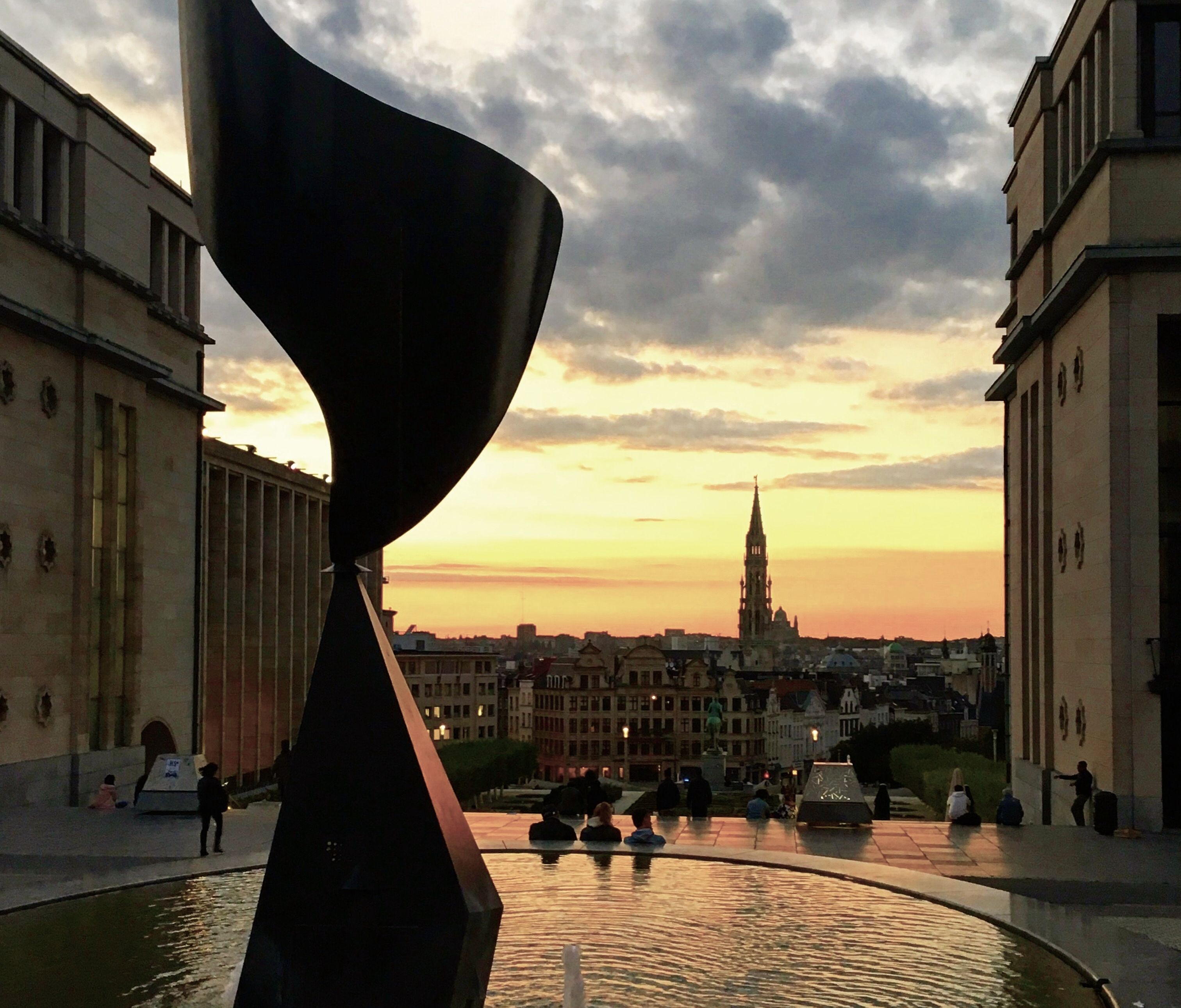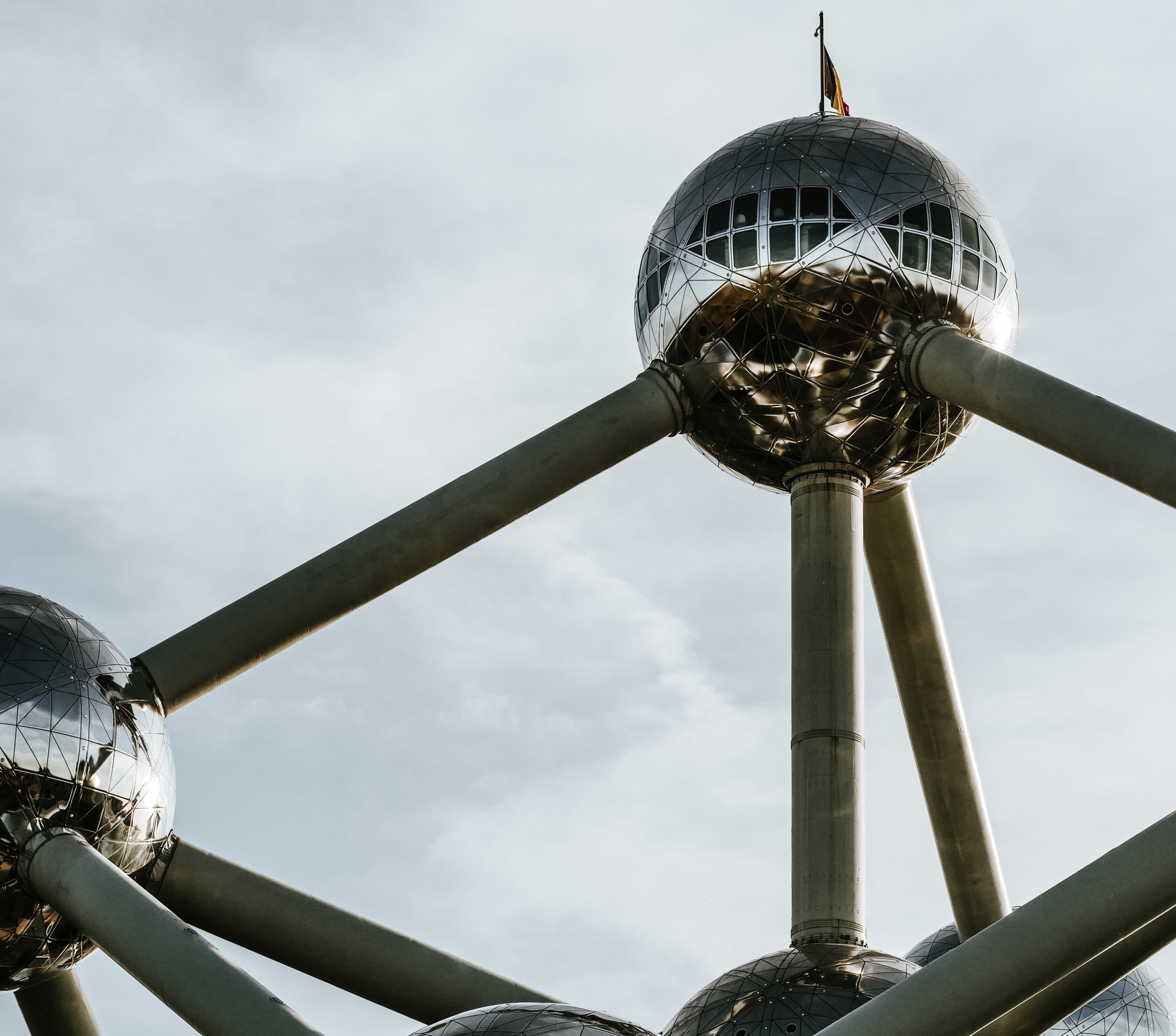
5 Fun facts about Belgium
- With its 180 nationalities, Brussels - the capital of Belgium - is one of the most international and multicultural cities in the EU.
- Brussels is home to the European Union and NATO.
- Approximately 700,000 tons of chocolate are produced in Belgium each year.
- Brussels’ Manneken-Pis has an extensive wardrobe of 1000 outfits that are kept in the Brussels City Museum.
- Belgium became independent from the Netherlands in 1830.
More information about Belgium can be found here.
What to visit during your stay
- The Parlamentarium
If you are interested in learning more about European politics and European history, you can visit the Parlamentarium, which is open on weekdays and on weekends.
Information on visiting hours and how to get to the Parlamentarium can be found here. - The European Parliament’s Hemicycle
You can book a tour to visit the European Parliament’s Hemicycle where the most pressing issues of the EU are debated.
Book your visit and find out more here. - The House of European History
The House of European History provides an overview of European history, with a focus on the 20th century and the history of European integration.
Find out more here.
Looking for more activities to do around Brussels? Check out the Visit Brussels website.


Beyond Brussels
Here are a few examples of nearby cities, easily accessible by train, that you may wish to visit during your stay in Brussels.
- Antwerp: Located about 55 km from Brussels, Antwerp is known for its port, which is one of the biggest in the world and the second largest port of Europe. Antwerp also has a historical centre and hosts many art museums worth visiting during your trip.
- Bruges: Bruges, otherwise known as the Venice of the North, is located about 100 km from Brussels. This city is known for its chocolate and well-preserved medieval architecture to admire during your visit.
- Ghent: Built along the Leie River, discover Ghent’s picturesque city with its canals, market squares and architecture dating back to the 12th century. Ghent is located about 50 km from Brussels.
- Knokke-Heist: Located about 106 km from Brussels, Knokke Heist offers the ultimate seaside experience.
- Namur : Namur is the capital city of the Walloon region of Belgium. The city lies at the confluence of the Meuse and Sambre rivers. It is overlooked by the marvellous Citadel of Namur, a medieval fortress with gardens, a panoramic view and a bronze statue of a giant tortoise.
- Liège: Liège, a city on the Meuse in the Walloon region of Belgium, has long been a major commercial and cultural centre. Its old town has many interesting sites dating back to medieval times, such as the Romanesque collegiate church of Saint-Barthélemy. It is also the gateway to the beautiful tourist region of the Ardennes.
Practical information
Before travelling to Belgium, we recommend that you consult the latest measures linked to the COVID-19 pandemic on the Belgian government’s official website here.
How to get to Brussels for the EDPS Summit?
- Located at the centre of Europe, Brussels is accessible by air, train, bus, car and ferry.
- Brussels has two airports.
- Brussels-National Airport or Zaventem is about 20 km from the city centre of Brussels. From the airport, you can reach the city centre by a direct train, which takes about 20 minutes and costs 9,20 euros (standard fare) for a single ticket. Taxis are also available upon exiting the airport. https://www.brusselsairport.be
- Brussels South Charleroi Airport is located about 50 km from the city centre of Brussels. From the airport, you can reach the city centre by the Brussels City Shuttle, which takes 45 minutes. Information on the airport and how to get there can be found here.
How to travel around Brussels?
- You can get around the city of Brussels by using the metro, buses and trams provided by the STIB-MIVB. To plan your journey, click here.
- To travel outside of Brussels, you can travel by train provided by the SNCB. To plan your journey, click here.
Administrative steps to take into account
- If you hold citizenship from an EU country, you do not need a visa to enter Belgium. However, we recommend that you carry your passport or ID card with you when travelling.
- If you do not hold citizenship from an EU country, you may need a valid passport and visa to enter Belgium. To check whether you need a valid passport or visa to enter Belgium, please consult the Belgian embassy in your home country. More information can be found here.
Health and Emergencies
- If you hold citizenship from an EU country, you can access Belgium’s healthcare services by using a European Health Insurance Card, issued in your home country. More information can be found here.
- If you do not hold citizenship from an EU country, you may need to take out appropriate travel insurance to cover any medical bills or appointments if necessary during your stay in Belgium.
- Before travelling to Belgium, we recommend that you visit your health professional to check whether you need any vaccines or take any other precautions related to your health.
- For emergencies, you can contact the 112; it is a number available everywhere in the EU, free of charge, and can be called via a landline or a mobile. Contact details for more specific problems you may encounter during your stay in Brussels can be found here.
Languages spoken in Belgium
- Belgium has three official languages: Dutch, French and German.
- Given that Brussels is an international city, most people also speak English.
Time zones
- Belgium time is one (1) hour ahead of Greenwich Mean Time (GMT +1).
Currency
- The currency used in Belgium is the Euro (€).
- Credit cards and debit cards from major banks are accepted for payments. These cards can also be used for cash withdrawals in ATMs.
- It is also possible to exchange foreign currencies and travel checks into Euros.
- Information on value-added tax can be found here.
Phone calls and internet
- International dialing, Wi-Fi and internet are widely available in Belgium.
- Local SIM cards can be purchased at convenience stores.
- The international dialing code for Belgium is +(32) or 00 32.
Electricity
- The standard voltage in Belgium is 220V. The plug/socket system is a two pin round pronged plug used across much of Europe.